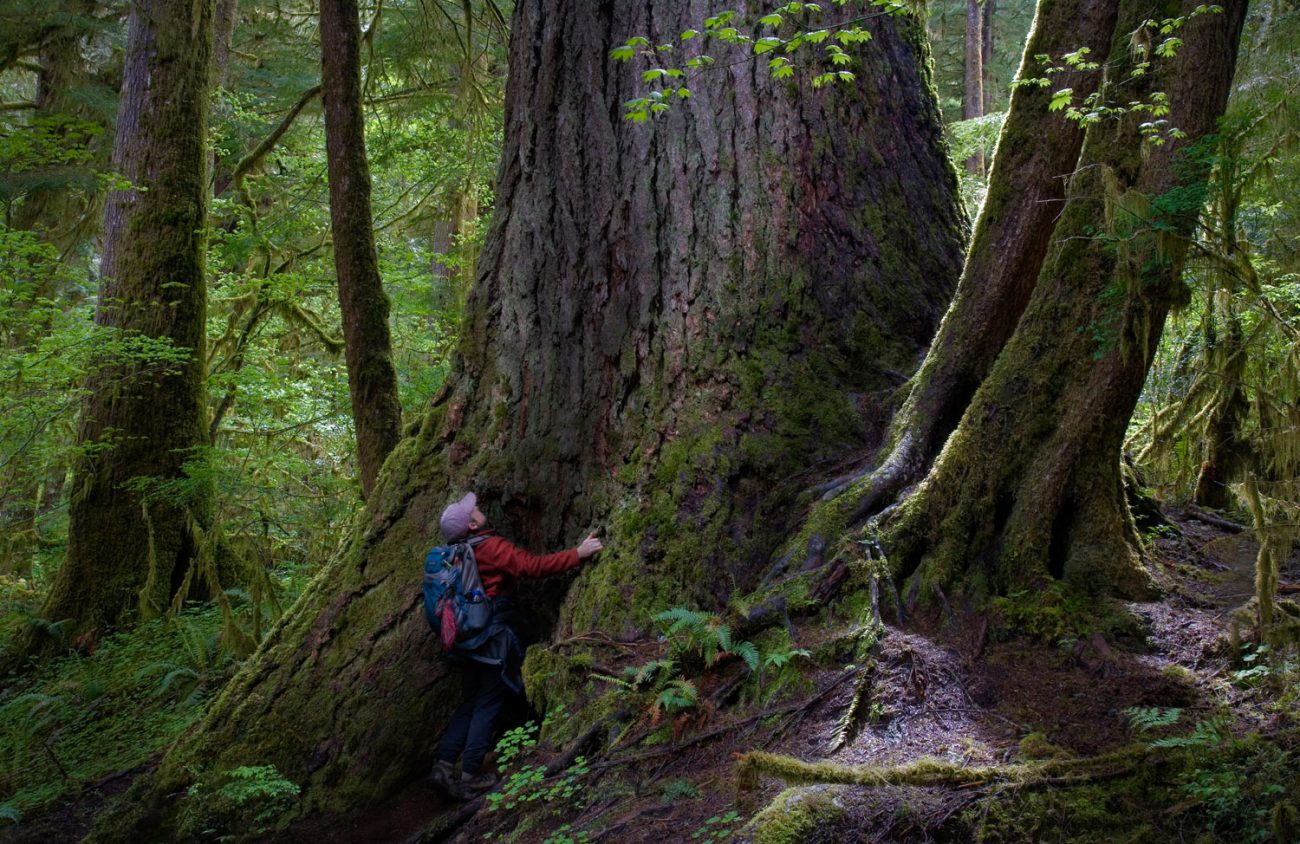This year, Oregon Wild marks 50 years of working to protect our state’s wildlands, wildlife and waters.
At Oregon Wild’s founding in 1974, newly minted environmental laws and protected areas were just hitting the books (think the Wilderness Act in 1964, Wild & Scenic Rivers Act in 1968 and Endangered Species Act in 1973). Ancient forests were falling fast and hard. Scientists were just starting to grasp the idea of global warming and what it could mean. Iconic species like wolves were absent from Oregon’s lands after being hunted to near extinction.
It would take grassroots organizations to breathe life into new laws and stand up for the environmental values that mattered to Oregonians. The Oregon Wilderness Coalition (Oregon Wild’s first name) was founded to do just that. A passionate group of outdoor-loving enthusiasts, including tree-hugging hippies from Eugene and elk hunters from Eastern Oregon, united to save Oregon’s forests from the rampant clearcutting that had all but decimated the state’s public forests.
The coalition saw success in the 1980s, securing protections for 850,000 acres of Wilderness and 1,400 miles of Wild & Scenic Rivers — from the North Fork John Day to Drift Creek. In the decades that followed, we changed our name twice (to Oregon Natural Resources Council (ONRC) in 1982 and Oregon Wild in 2006); gained additional Wilderness protection through bills passed in 1996, 2009 and 2019; fought for roadless area protections throughout the late ’90s and into 2001; protected Portland’s Bull Run watershed; advocated for wolves as the keystone species returned to Oregon; and fought innumerable timber sales targeting old-growth forests and wildlife habitat.
Most of our staff members would much rather spend a day in the woods than in meetings in D.C., but we understand the critical need to engage in the politics of the environmental movement. In Salem and Washington D.C., we’ve worked to apply pressure and find common ground with the politicians who share our values — from congressmen Jim Weaver and Peter DeFazio to Sen. Ron Wyden. Political setbacks come with the territory, including dealmaking and compromises in Congress that whittled away at proposed protections, and Bush and Trump administrations that worked actively to undo progress for forests, public lands and endangered wildlife.
But we’re still here. From our small, scrappy beginnings in Eugene 50 years ago, Oregon Wild has grown to meet the challenges facing the natural world. We’ve been at the center of every major public lands and wildlife conservation battle in the state, and we’ve carved out a well-earned reputation as fierce advocates for the wild. We’ve doubled the amount of public forest lands reserved from logging and development. Protected waterways have swelled. And we’ve helped keystone species come back from the brink and set aside habitat for wildlife threatened by our rampant development.
In our 50th year, Oregon Wild isn’t slowing down. We’re leading a national effort to finally secure protection for all mature and old-growth forests on public lands for the vital role they play in fighting climate change. We’re leading a local coalition to Wild & Scenic River designations for over 3,000 miles of waterways across the state. We continue to fight against illegal actions that harm our forests and the wildlife that depend on them. And we are dedicating ourselves to diversifying the Oregon conservation movement to ensure that everyone who loves and benefits from Oregon’s wild places has a voice in how they are protected.
We need your voice to keep us strong. I invite you to join our fight so that nature doesn’t just survive, but thrives.
———
Chandra LeGue is senior conservation advocate for Oregon Wild and author of the book Oregon’s Ancient Forests: A hiking guide.
Oregon Wild celebrates its 50th anniversary with a gala event in Eugene on May 11. Tickets available at OregonWild.org/evergreengala. More events will be announced at OregonWild.org.
